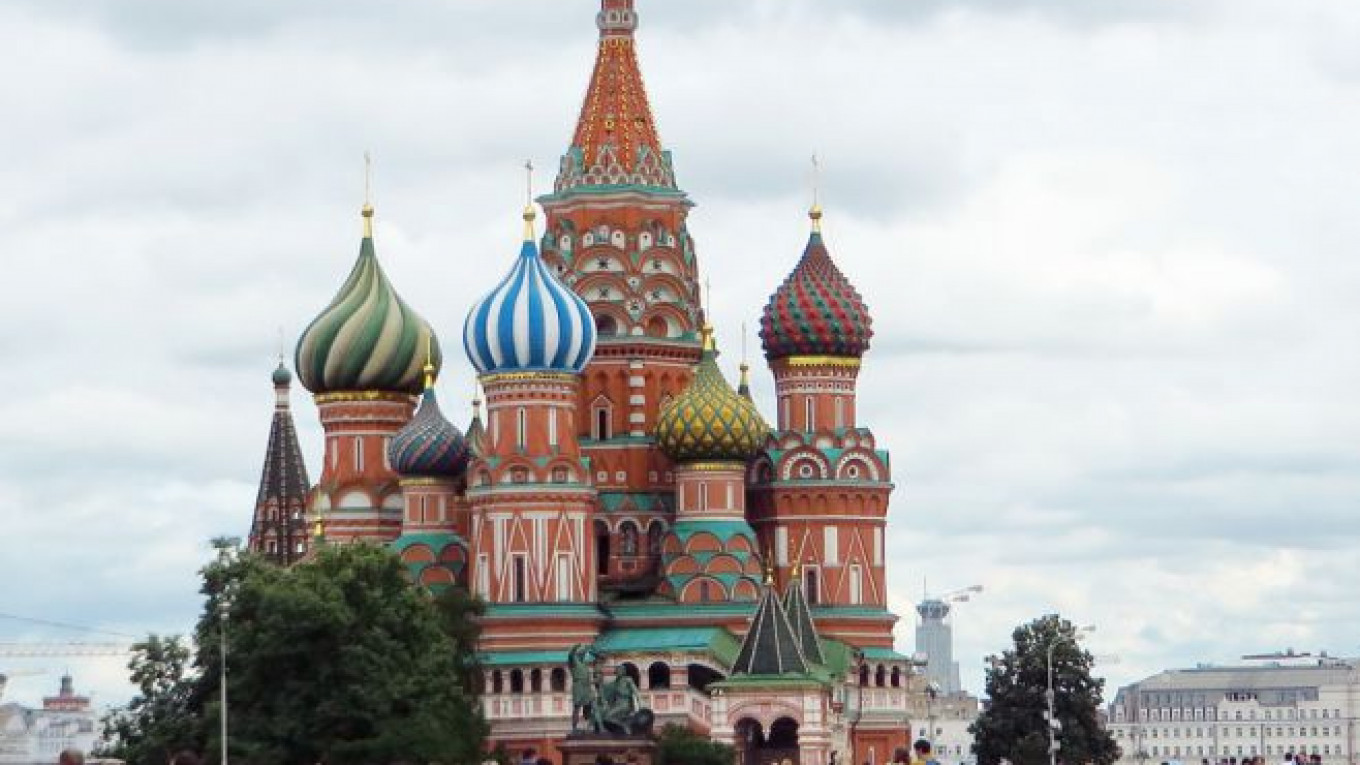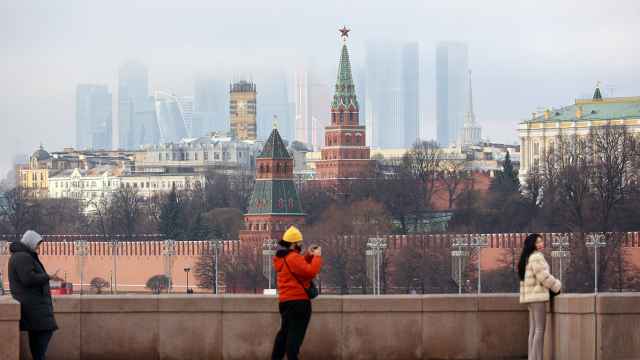 Jill Dougherty
Jill DoughertyMy introduction to Moscow more than forty five years ago didn't go well.
I was an exchange student in Leningrad (now St. Petersburg), living in a dormitory close to the Peter and Paul Fortress. Each morning I awoke to a picture-postcard view of the Hermitage, just across the Neva River. I was soon conquered by the city's elegant symmetry, its theatrical magic.
Moscow — hulking, dark, grey, Soviet — seemed a stark contrast to the elegance of Leningrad, even in its dilapidated state. I found little to like in the capital. Even the people rushing by on the street seemed bigger and harsher.
But as I returned to both cities many times during the following decades, my feelings for Moscow slowly changed. The beauty of St. Petersburg still charmed me but Moscow's "Russianness" began to slowly work its way into my soul.
In 1997 I moved to Moscow, this time as CNN's Bureau Chief, and began what would be nine years in the capital.
I walked everywhere I could, exploring neighborhoods from Patriarch's Pond to Zamoskvorechye. Turning a corner, it seemed I always found something entirely unexpected — a monstrous Soviet edifice, like a slap in the face, followed by a heartbreakingly beautiful church.
I quickly found the neighborhood I adopted as my "virtual" home: the streets and lanes near Bolshaya Nikitskaya Ulitsa.
I discovered the intimate Khram Vozneseniya Gospodnya, hoping to pass by just as the bell-ringer would ascend the stairs to the tower, grasp the ropes, and fill the air with a cascade of sound. Coffee houses were springing up and I loved sitting there on a snowy day, lost in a Silver Age reverie.
Just across the street was the Conservatory, where I spent some of my happiest times in Moscow.
On winter weekends I would load the car with my skis and head for Sparrow Hills near Moscow State University, where I would go cross-country skiing in its birch tree forests. After a couple of hours it was back home for a breakfast of Borodinsky bread and some suluguni cheese.
I left Moscow in 2005 for Hong Kong and missed Moscow like a close friend.
I've returned many times since. On each visit the city seems transformed. The road in from Sheremetyevo airport now is lined with the glass headquarters of internet companies.
Gorky Park has gone from Soviet schlock to an urban masterpiece. Restaurants rival those of any European or American city. At night, the city looks like a stage set, glittering with artfully designed lighting. There are bike paths, although I rarely see bikes on them, and bikes for rent, a humanizing touch welcome in the midst of Moscow's soul-crushing traffic.
Traffic and pedestrian lights in the city center count down the seconds to stop and start, creating a safer feeling of predictability. Many Muscovites still drive way too fast, so I wait at the light, establish eye contact, then proceed. More and more, the drivers stop to let me go — the promise of a more civilized future.
And yet, there's something beneath the surface now in Moscow, a harder edge, a nervous energy.
In Leningrad, almost half a century ago, people would say, like a mantra "Peace and friendship," (mir i druzhba) "Just so there's no war."
This trip, as I drive to the airport, the taxi driver asks me "Will there be war?"
"With whom?" I reply. "With America," he says. He's the third person who has asked me that.
Jill Dougherty is a former CNN Moscow Bureau Chief and an independent researcher on Russia.
A Message from The Moscow Times:
Dear readers,
We are facing unprecedented challenges. Russia's Prosecutor General's Office has designated The Moscow Times as an "undesirable" organization, criminalizing our work and putting our staff at risk of prosecution. This follows our earlier unjust labeling as a "foreign agent."
These actions are direct attempts to silence independent journalism in Russia. The authorities claim our work "discredits the decisions of the Russian leadership." We see things differently: we strive to provide accurate, unbiased reporting on Russia.
We, the journalists of The Moscow Times, refuse to be silenced. But to continue our work, we need your help.
Your support, no matter how small, makes a world of difference. If you can, please support us monthly starting from just $2. It's quick to set up, and every contribution makes a significant impact.
By supporting The Moscow Times, you're defending open, independent journalism in the face of repression. Thank you for standing with us.
Remind me later.






